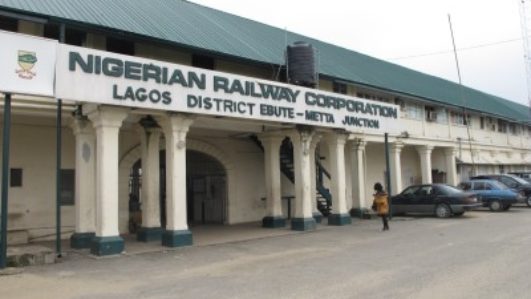
Operators lament multiple handling charges, delay in cargo movement
The Nigerian Railway Corporation has failed to reach its target of 90 cargo haulage trips monthly via the $1.5 billion Lagos-Ibadan standard gauge rail that was launched about two months ago.
This is just as importers, freight forwarders and Customs agents have abandoned the rail service over double handling charges from the loading terminal at Apapa port, to the rail service cost and the terminal offloading in Ibadan.
Also, since the arrival of the Lagos-Ibadan cargo train at Apapa Port with a sizeable number of export units of containers on October 29, from Moniya in Ibadan, it has not returned to Ibadan as of yesterday due to a lack of import units of containers to transport.
According to the National Bureau of Statistics (NBS), Foreign Trade in Goods Statistics second quarter 2023 report, Apapa port recorded 63.74 per cent of total imports into the country and 93.65 per cent of total exports. Over 90 per cent of these imports and exports were transported via trucks.
Other issues associated with the abandonment include lack of stakeholders and users’ sensitisation of the service, poor handling service of the Nigerian Railway Corporation (NRC), and terminal logistics at Ibadan, leading to delay in cargo delivery.
Recall that during the commissioning of the standard gauge rail service from Apapa Port to Ibadan on September 12, the Minister of Transportation, Saidu Alkali, and the Lagos District Manager of NRC, Augustine Arisa, said cargo movements via the standard gauge rail is now fully operational.
They assured that the freight services would start with three coaches of 30 wagons per day, totaling 90 trips per month, which will increase to nine trips per day and 270 trips per month when the Customs scanner building is removed.
But about two months after the flag-off, importers, freight forwarders and agents have refused to patronise the cargo rail following different challenges, making the service expensive and time consuming than the regular truck haulage.
Former President Muhammadu Buhari had inaugurated the 157km rail on June 20, 2021, to ease cargo evacuation from Apapa port and reduce the burden of containers on the roads, as well as congestion at the ports and access routes.
A source at NRC, who does not want his name mentioned, said cargo owners are shunning the rail service due to various problems such as double handling charges slammed on their cargoes from APM Terminal at the point of loading at the port and on arrival in Moniya, Ibadan.
“There are problems. When you want to move goods by rail, it is not NRC that charges, there is a degree of double handling charges involved. APM Terminal will charge for loading onto the wagon, NRC will charge for moving from Lagos to Ibadan, the terminal at Ibadan will offload the wagon and charge for that, then to load it onto the truck to the destination, they charge for it. All these charges now add up and when you compare those charges to transporting directly by road, it is cheaper to go by road,” he said.
Here the rail charge is about N180,000 per wagon, with APMT charging N30,000 to load on the train and the terminal in Ibadan charging N30,000 to offload the container, as well as charges to load on the trucks that will take the cargoes to their final destinations up North.
“NRC has been trying to talk to various stakeholders involved in the supply chain to see how to reduce all those charges. Also, negotiations are ongoing to see how best we can compete with the road end-to-end. That is why the movement via rail is expensive, although not the rail charge, which is less than by road,” he said.
The National Coordinator of the Save Nigeria Freight Forwarders, Importers and Exporters Coalition (SNFFIEC), Osita Chukwu Patrick, said the rail service providers are not serious as the service is not available when needed.
He said people are ready to use the rail service, but while waiting for it, they incur demurrage because of delay in accessing the service, which takes about a week and additional waiting time to leave for Ibadan, which he said is time consuming, especially when the final destination is actually not Ibadan.
“The rail is not consistent, but when you give it to a truck, it will reach Ibadan today. This is what necessitated the nonpatronage. The cost of moving cargos via rail is expensive. You pay for terminal, demurrage, and other sundry charges. Using rail, you use over N400,000, but with truck to Ibadan, it’s just N250,000,” he said.
The former Interim President, Association of Nigerian Licensed Customs Agents (ANLCA), Ujubuonu Pius, said the stakeholders are unaware of the efficiency, convenience, and service delivery of the rail service. He said the facility service providers have not educated and enlightened the users on the prevalence and value-added service that the facility gives.
“Every businessman wants something efficient, how efficient is the rail service? How easily will the interchange be after writing your Terminal Delivery Order (TDO), who do you hand over your containers to? The Ibadan terminal, how secure is it? Do they have equipment and space where people can easily offload their containers? You look at these things and know the convenience?” he asked.
The coordinator of ANLCA, Apapa, Frank Aliakor, said the rails tracks are not placed in order within the NPA point, adding that it takes days and sometimes weeks to load cargoes on the train to Ibadan and also offloading at the end point before loading on to the truck to their respective destinations in the North.

